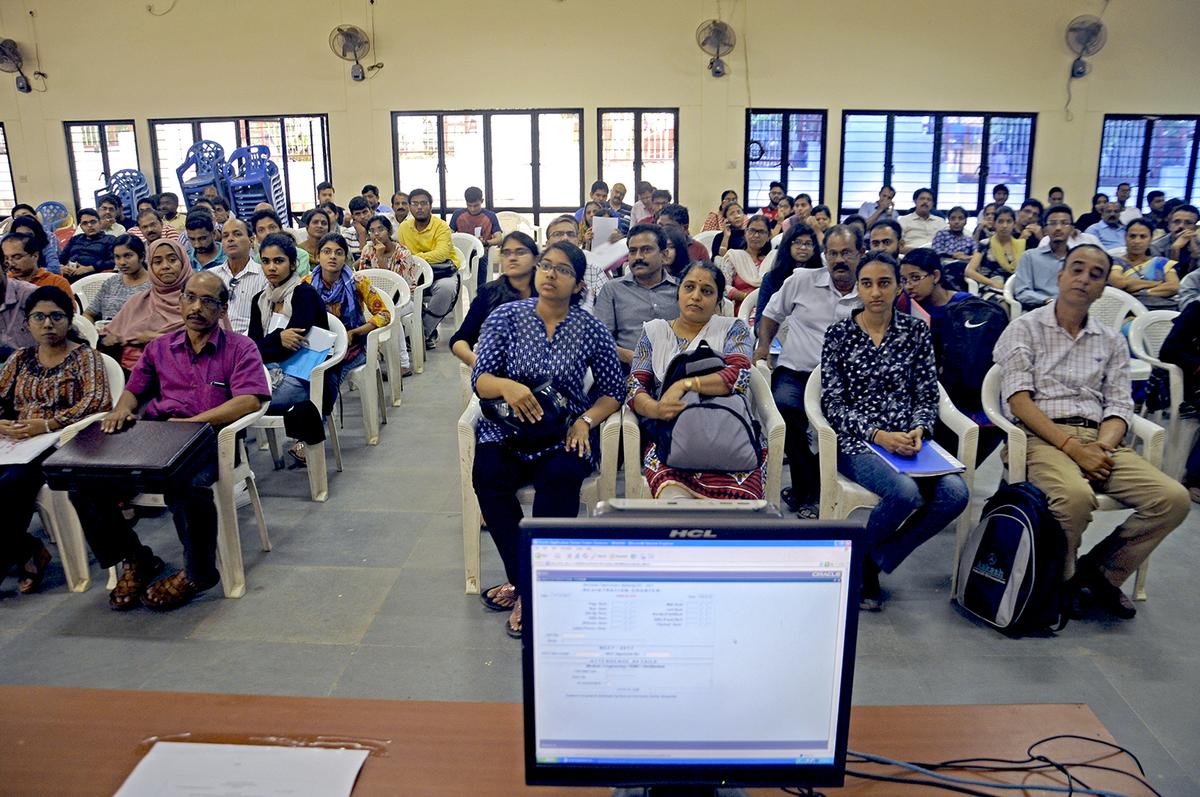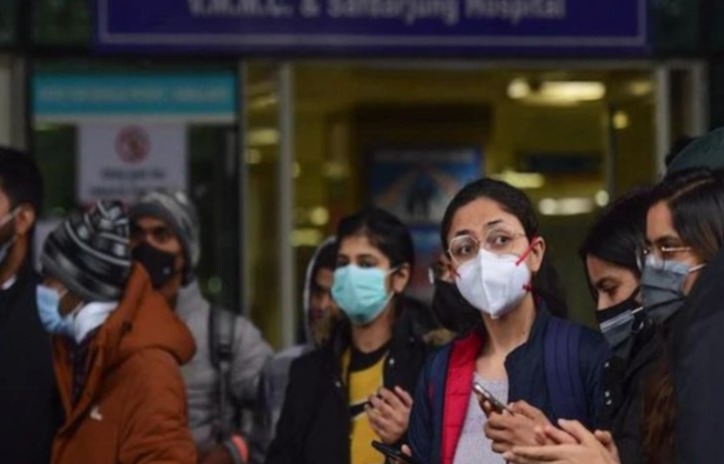Medical education in Karnataka has received a major boost with the state government approving 200 additional MBBS seats for the third round of counselling. The decision, welcomed by thousands of medical aspirants, aims to accommodate the growing demand for admissions in both government and private colleges. The Karnataka Examinations Authority (KEA) confirmed that the seats will be distributed among several newly approved and existing institutions that have received recognition from the National Medical Commission (NMC). This development not only expands access to medical education but also reflects the government’s commitment to strengthening healthcare infrastructure across the state.
Officials stated that the additional seats were sanctioned following inspections and compliance reports from NMC. Many of the institutions that received approval had recently upgraded their teaching hospitals, laboratories, and student facilities. The inclusion of these new seats is expected to reduce competition among candidates who narrowly missed admission in earlier rounds. For many students, this announcement brings renewed hope and relief amid the intense pressure of medical entrance processes. The KEA has urged aspirants to monitor its official website for the updated seat matrix and counselling schedule, assuring complete transparency in the process.
This move also signals Karnataka’s larger vision to become a medical education hub in South India. With its strong network of government and private colleges, the state continues to attract students from across the country. The addition of 200 seats aligns with broader efforts to increase the number of trained doctors, particularly in rural areas where healthcare resources remain limited. Experts believe that expanding medical education capacity is a crucial step toward bridging the urban-rural healthcare divide and achieving universal health access.
KEA Issues Revised Counselling Schedule
Following the approval of additional seats, the KEA has revised its counselling schedule to ensure eligible candidates are not left out. Students who had previously registered can participate in the third round without any additional fees.
Officials clarified that seat allotments will be merit-based and strictly follow the reservation guidelines, ensuring fair distribution across categories and institutions statewide.

Medical Institutions Prepare for New Intakes
Colleges granted the new seats have been instructed to upgrade infrastructure and faculty strength immediately. The Health and Medical Education Department has emphasized that quality standards must be maintained.
Several colleges have already begun preparing hostels, classrooms, and laboratories to accommodate the incoming batch, ensuring compliance with NMC regulations and student safety standards.
The expansion of medical seats is expected to have far-reaching implications for Karnataka’s healthcare landscape. Experts note that while increasing capacity addresses immediate demand, long-term success will depend on ensuring academic quality and hands-on clinical exposure. The government’s strategy to combine educational expansion with rural healthcare initiatives is being viewed as a progressive model for other states. As thousands of aspirants prepare for the final round of counselling, the announcement serves as a reminder of Karnataka’s continued leadership in medical education and its commitment to producing skilled healthcare professionals ready to serve society.
The announcement of 200 additional medical seats in Karnataka has brought significant relief to students who narrowly missed admissions in the previous counselling rounds. Many aspirants had expressed concern over limited seat availability, citing intense competition and rising cut-off scores. With the new seats being introduced, candidates from both urban and rural areas now have a renewed opportunity to pursue their dreams of becoming doctors. The inclusion of these seats reflects a balanced approach, combining merit-based access with efforts to ensure equitable opportunities for students from diverse backgrounds.
Medical colleges receiving new seats are preparing extensively to meet academic and infrastructural requirements. Faculty recruitment has been prioritized to ensure that student-teacher ratios comply with NMC norms. Institutions are also upgrading hospital wards, labs, and libraries to provide adequate clinical exposure. This ensures that while more students are accommodated, the quality of medical education is not compromised. Experts emphasize that expansion must go hand in hand with maintaining academic standards to produce competent healthcare professionals.
The Karnataka Examinations Authority (KEA) has updated the counselling guidelines to incorporate these additional seats. Applicants participating in the third round will be able to select from a revised seat matrix published online. The KEA has emphasized transparency, assuring that the merit list, seat allotment, and category reservations will be strictly adhered to. Candidates are encouraged to regularly check official communications to avoid missing deadlines or instructions.
Rural medical colleges in Karnataka stand to gain particularly from this expansion. Many of the new seats have been allocated to institutions located in underserved regions, aiming to encourage more students to train in rural healthcare settings. Such initiatives are expected to strengthen the healthcare workforce in areas that traditionally face shortages of qualified medical professionals. Authorities believe that students trained in these regions are more likely to serve local communities post-graduation.
The government’s strategy is not limited to increasing seat numbers; it also includes improving the quality of medical education. Several colleges are receiving grants for upgrading teaching hospitals, procuring advanced medical equipment, and organizing faculty development programs. These steps ensure that students receive practical exposure alongside theoretical knowledge, preparing them for the challenges of modern healthcare practice.

Student associations and advocacy groups have welcomed the announcement, calling it a positive step toward reducing the stress associated with medical admissions. Many students and parents had voiced concerns about the bottleneck in seat availability, which forced some to consider institutions outside the state or country. The expansion now offers a viable alternative, keeping talent within Karnataka and contributing to local medical infrastructure.
Analysts note that the addition of seats aligns with India’s broader healthcare objectives, including increasing doctor-to-population ratios and improving access to quality healthcare services. By producing more trained professionals annually, Karnataka contributes to national targets for healthcare coverage, particularly in rural and semi-urban regions. This systemic approach is seen as crucial for strengthening public health outcomes.
Counselling sessions have been structured to ensure smooth allocation of these new seats. Officials have introduced staggered timings and online options to avoid overcrowding and ensure that candidates can make informed choices. The emphasis on digital facilitation also reflects a move toward more efficient administrative processes, reducing procedural delays and minimizing errors during seat allocation.
Several private medical colleges have also benefited from the additional seat allocation. These institutions were required to demonstrate compliance with NMC regulations, including adequate faculty strength, infrastructure, and hospital facilities. Only after verification were the new seats approved, highlighting the government’s commitment to maintaining quality alongside quantity.
The increased seat capacity is expected to reduce migration of students to other states for medical education. Previously, Karnataka’s limited seat availability forced many aspiring doctors to seek admission in neighboring states or private institutions far from home. With more local opportunities, students can pursue education closer to their communities, reducing financial and emotional strain while contributing to the state’s healthcare ecosystem.
Parents of aspirants have expressed relief at the news, emphasizing the psychological and financial benefits of expanded opportunities. Many families had invested considerable resources in coaching and preparation for medical entrance exams, with high levels of stress associated with previous limited seat availability. The expansion is seen as a validation of students’ efforts and a critical step in supporting their educational ambitions.
The Health and Medical Education Department has underscored that quality monitoring will continue for the new batches. Periodic inspections, feedback mechanisms, and adherence to NMC standards are being prioritized to ensure that the additional seats do not dilute educational quality. Departments are also implementing mentorship programs to guide first-year students through rigorous medical curricula.
Some colleges have introduced new specialty departments to accommodate the growing number of students. Departments such as community medicine, pathology, and pharmacology have expanded capacity to ensure that every student receives sufficient exposure to essential subjects. Laboratory equipment, teaching aids, and clinical simulation tools are being upgraded to meet the increased demand.
The announcement has also sparked discussions about future expansions in postgraduate medical seats. Experts suggest that while undergraduate seat growth is essential, attention must also be paid to advanced specialty courses to prevent bottlenecks in higher medical education. Karnataka is exploring opportunities to increase postgraduate capacity alongside undergraduate expansion to create a robust medical education pipeline.
Healthcare policy analysts note that increasing the number of trained doctors will also have a multiplier effect on public health outcomes. More graduates can lead to improved patient care, enhanced preventive medicine initiatives, and stronger response mechanisms during public health crises. By aligning medical education expansion with broader health objectives, the state aims to ensure a sustainable impact on healthcare delivery.
Community health programs in districts where new seats are being introduced will benefit directly from increased student engagement. Medical students often participate in vaccination drives, awareness campaigns, and rural health camps, providing critical support to local healthcare initiatives. The new seats therefore contribute not only to education but also to practical, community-level health improvements.
Finally, the additional 200 seats represent a significant opportunity for Karnataka to strengthen its position as a leading medical education hub in India. By combining expansion with quality assurance, infrastructural upgrades, and targeted rural placements, the state seeks to create a cadre of competent healthcare professionals ready to serve diverse populations. Aspirants entering through the third round of counselling now have the chance to shape their futures while contributing meaningfully to the state’s healthcare landscape.
Follow: Karnataka Government
Also read: Home | Channel 6 Network – Latest News, Breaking Updates: Politics, Business, Tech & More

